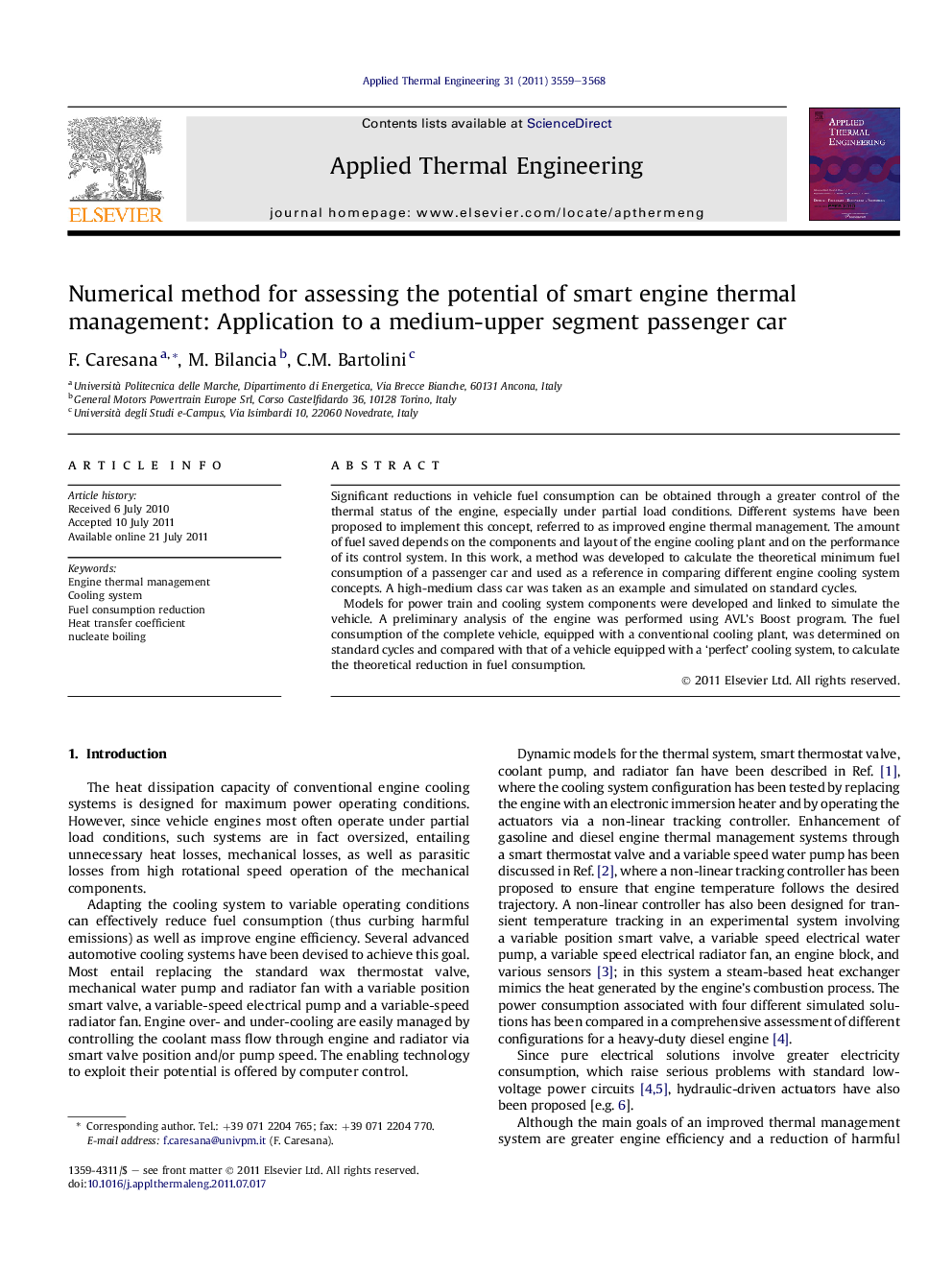| Article ID | Journal | Published Year | Pages | File Type |
|---|---|---|---|---|
| 647695 | Applied Thermal Engineering | 2011 | 10 Pages |
Significant reductions in vehicle fuel consumption can be obtained through a greater control of the thermal status of the engine, especially under partial load conditions. Different systems have been proposed to implement this concept, referred to as improved engine thermal management. The amount of fuel saved depends on the components and layout of the engine cooling plant and on the performance of its control system. In this work, a method was developed to calculate the theoretical minimum fuel consumption of a passenger car and used as a reference in comparing different engine cooling system concepts. A high-medium class car was taken as an example and simulated on standard cycles.Models for power train and cooling system components were developed and linked to simulate the vehicle. A preliminary analysis of the engine was performed using AVL’s Boost program. The fuel consumption of the complete vehicle, equipped with a conventional cooling plant, was determined on standard cycles and compared with that of a vehicle equipped with a ‘perfect’ cooling system, to calculate the theoretical reduction in fuel consumption.
► We propose a method for assessing the potential of smart engine thermal management. ► A conventional cooling system is compared to a ‘perfect’ one to estimate fuel economy. ► We tested the method in an upper-medium segment passenger car.
